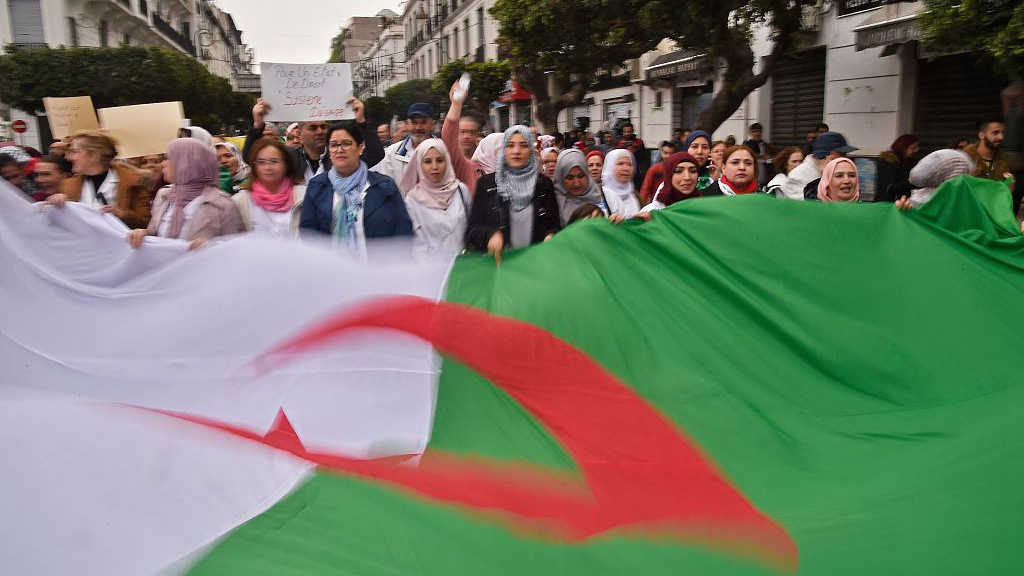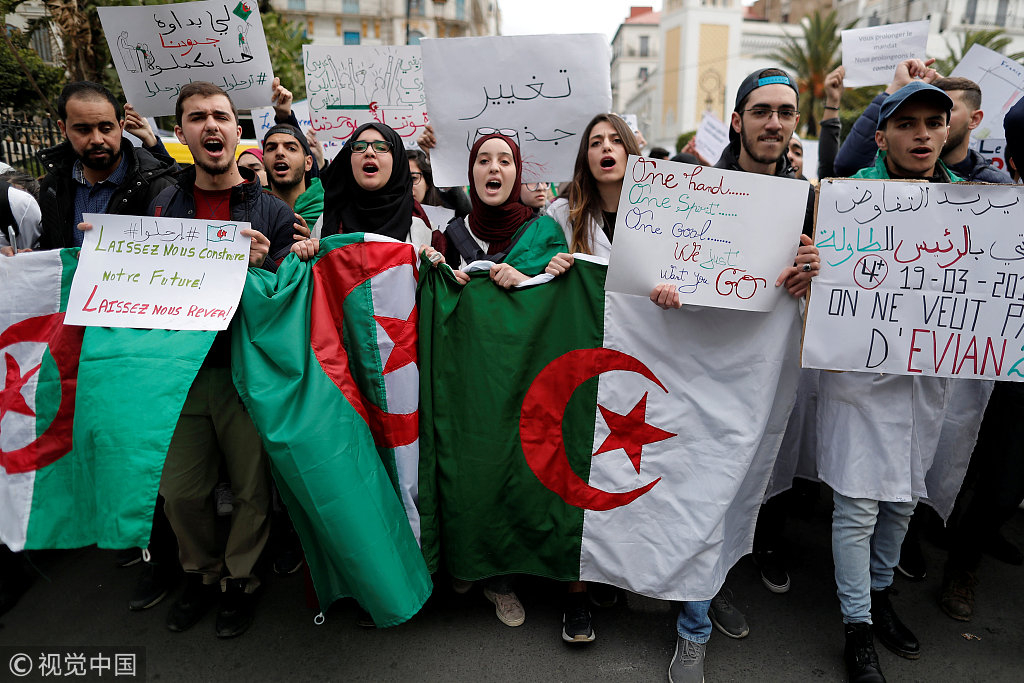
TV Show
10:46, 22-Mar-2019
Algeria's protests in a nutshell
CGTN's The Heat
02:02

The Algerian protests broke out on February 16, 2019, ten days after President Abdelaziz Bouteflika's announcement to seek a fifth presidential term in a statement. On February 16, Kherrata, a town in northern Algeria, is where the first major demonstration took place. On the day, hundreds of people asked Bouteflika to resign and rejected his attempt to extend his fourth presidential term.
Since then, for nearly a month, hundreds of thousands of Algerians have rallied in cities across the country, calling for Bouteflika to step down.
On March 11, Bouteflika had to make an announcement to confirm that he won't seek a fifth term in office and the elections scheduled on April 18 were postponed as well.
Under the 20-year regime of Bouteflika, many Algerians were hoping for reforms and a change in the country's leadership. Is this an Arab Spring moment for Algeria?
“You would see slogans that show a very high level of political savviness,” Francis Ghiles, a senior research fellow at the Barcelona Centre for International Affairs, tells CGTN. He points out that the faces in the marches and demonstrations are not only young but also sophisticated.
Moreover, he states that except for the corrupt part of Algerian politics, there are still many well-educated and capable politicians that people can count on.

Students shout slogans during a protest calling on President Abdelaziz Bouteflika to quit, in Algiers, Algeria on March 19, 2019. /VCG Photo
Students shout slogans during a protest calling on President Abdelaziz Bouteflika to quit, in Algiers, Algeria on March 19, 2019. /VCG Photo
“The state of the economy is poor,” Francis Ghiles says. The oil and gas export industry have always been Algeria's main economy, which has experienced much corruption and monetary loss in the past 20 years. While the huge population of young people is experiencing unemployment, a different economic plan is urgent in Ghiles' opinion.
Several scholars express their hopes in former governors and politicians who have experienced wars and key moments in the nation.
“A figure from the past linking the past to the present” and “someone who is credible in the eyes of Algerian people” is who Algerians will need as the new president, Mohamed Kirat, professor of Public Relations and Mass Communication at Doha University tells CGTN.
As Kirat notes, the current situation is like a standoff. Although Bouteflika announced giving up his attempt to seek a fifth term in office, he doesn't want to leave any time soon. However, residents in Algeria's major cities hope he will resign immediately, which creates a complicated situation.
The Heat with Anand Naidoo is a 30-minute political talk show on CGTN. It airs weekdays at 7:00 a.m. BJT and 6:00 p.m. Eastern in the United States.
(If you want to contribute and have specific expertise, please contact us at opinions@cgtn.com.)

SITEMAP
Copyright © 2018 CGTN. Beijing ICP prepared NO.16065310-3
Copyright © 2018 CGTN. Beijing ICP prepared NO.16065310-3